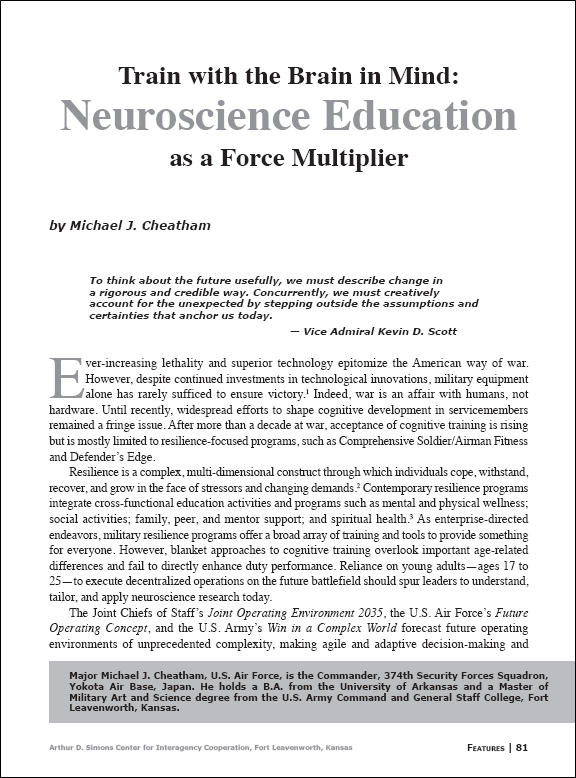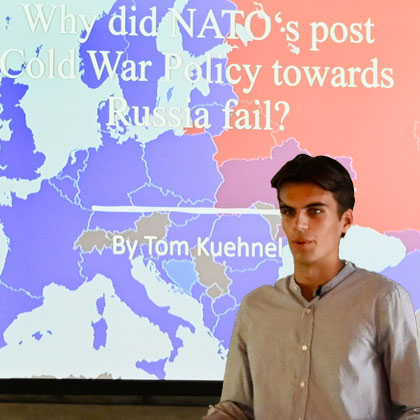Featured Article: Train with the Brain in Mind…
Featured article:
Train with the Brain in Mind: Neuroscience Education as a Force Multiplier
by Michael J. Cheatham
Ever-increasing lethality and superior technology epitomize the American way of war. However, despite continued investments in technological innovations, military equipment alone has rarely sufficed to ensure victory. Indeed, war is an affair with humans, not hardware. Until recently, widespread efforts to shape cognitive development in servicemembers remained a fringe issue. After more than a decade at war, acceptance of cognitive training is rising but is mostly limited to resilience-focused programs, such as Comprehensive Soldier/Airman Fitness and Defender’s Edge.
Resilience is a complex, multi-dimensional construct through which individuals cope, withstand, recover, and grow in the face of stressors and changing demands. Contemporary resilience programs integrate cross-functional education activities and programs such as mental and physical wellness; social activities; family, peer, and mentor support; and spiritual health.3 As enterprise-directed endeavors, military resilience programs offer a broad array of training and tools to provide something for everyone. However, blanket approaches to cognitive training overlook important age-related differences and fail to directly enhance duty performance. Reliance on young adults—ages 17 to 25—to execute decentralized operations on the future battlefield should spur leaders to understand, tailor, and apply neuroscience research today.
The Joint Chiefs of Staff’s Joint Operating Environment 2035, the U.S. Air Force’s Future Operating Concept, and the U.S. Army’s Win in a Complex World forecast future operating environments of unprecedented complexity, making agile and adaptive decision-making…
Read the full article
Train with the Brain in Mind: Neuroscience Education as a Force Multiplier PDF
Download the complete edition
IAJ 8-4 (2017) PDF
IAJ 8-4 (2017) ePub
Major Michael J. Cheatham, U.S. Air Force, is the Commander, 374th Security Forces Squadron, Yokota Air Base, Japan. He holds a B.A. from the University of Arkansas and a Master of Military Art and Science degree from the U.S. Army Command and General Staff College, Fort Leavenworth, Kansas.

Posted: January 3, 2018 by Simons Center
READ THE LATEST UPDATES FROM THE SIMONS CENTER
"*" indicates required fields


